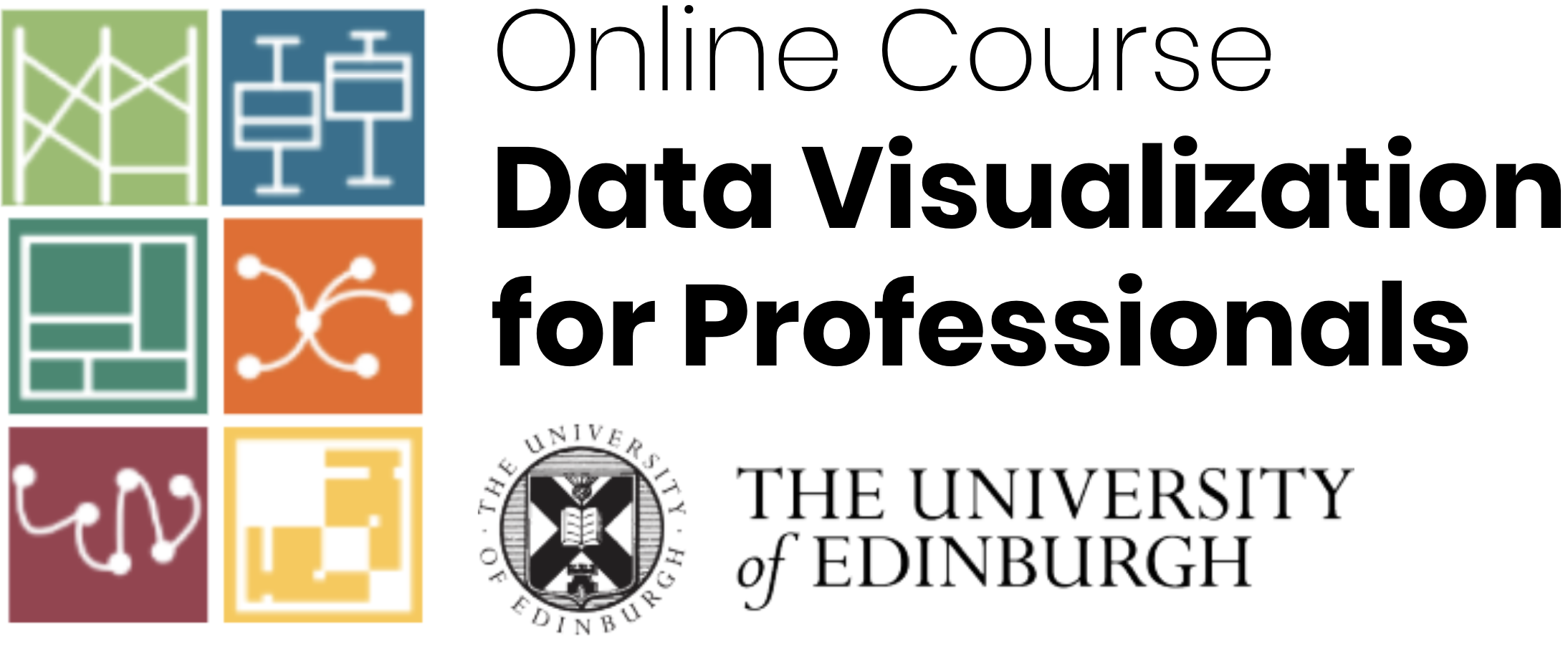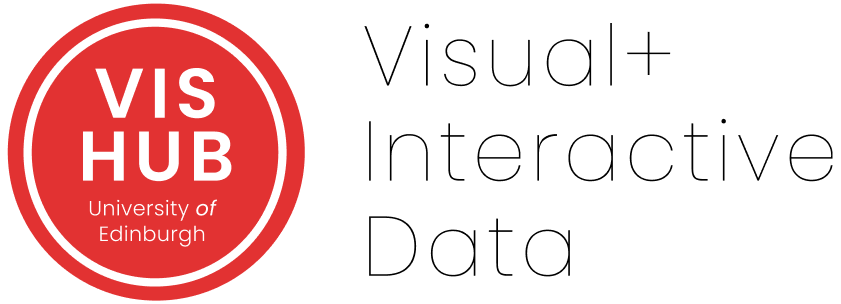
This is an online course on data visualization for upskilling professionals in all sectors running 16. May – 10. July 2022
Navigation
OverviewCourse Description
Teaching Approach
Topics & Schedule
Requirements, Fees and Waivers
How to apply
FAQs
Apply
Team
E-mail us

Frequently Asked Questions
We list here answers to questions from applicants and more detail about discussions on key topics raised during interviews with potential course applicants. This is a live document and will be updated regularly; please e-mail us if you have any questions not addressed here.
Formal course application
Q: Are there any specific eligibility requirements for taking part in the course?
- The key requirement for eligibility is interest in data visualisation.
- Note you do not need to have a technical or computer-related background or experience.
- You must have work experience beyond school; this may be in any sector.
- You do not need to currently be in employment.
Q: Do I qualify for a fee waiver?
Eligibility criteria for a fee waiver are laid out here. For questions regarding fees and applications please email Bayes
Q: Completing the application form
Applications are not managed by the organisers of this visualisation course but centrally through the University of Edinburgh. The course application is open.
We have provided answers to common questions from applicants on the application process, along with detail on eligibility for fee waivers.
While application before Fri, 29th April 2022 is preffered (in order to distribute relevant course content for preparation in advance), the Bayes Centre will accept applications for this course till close of play Fri, 9th May 2022.
For questions regarding fees and applications please email Bayes.
Course offers
Offer letters refer to the wider Bayes Centre’s data skills portfolio, with course detail:
- course title: PG Professional Development in Data Skills Workforce Development (Online Learning) (ICL)
- code: PTPDVDSWDV1U
Provided you stated in the personal statement section of your application for this course you should have been assigned to it. Otherwise please e-mail Bayes to clarify this.
Q: Can I also take another course in Bayes’ Data Skills Workforce Development portfolio?
There are no restrictions on how many courses you may take each year. However, each course requires up to 100 hours of study on average, so you may wish to consider whether course loads may pose a problem where schedules overlap.
If you are reliant on fee waivers, please note that these are normally restricted to one per applicant for each run of the Workforce Development portfolio. However, the current disruption to work, normal schedules and processes means that exceptions may be made on a case by case basis. Please contact the Bayes Centre if you wish to apply for another course in addition to this one.
Hands-on sessions and project work
Q: What software do I need for the course?
Live elements of the course will primarily be run on MS Teams with all pre-recorded content being accessible through any modern web browser.
We will provide information on accessing and/or installing any other software used in tutorials as and when needed. This is not required as we will provide live demos where necessary. If you wish to try a new tool, some may be accessed from a web browser. Installing desktop tools will remain optional.
Q: What level of technology proficiency do I need?
We have a range of potential participants with proficiency ranging from basic – using mainly office-based tools, to people who use dedicated visualisation tools, to people with some knowledge of programming. We will provide support to all participants regardless of technology proficiency, to acquire understanding of basic and more advanced visualisation concepts, and link those to practical application.
Each participant will have the opportunity to focus on a sub-set of advanced visualisation options, based on their project definition and other skills desired for work or personal interests.
Q: What is going to happen in the tutorials?
The tutorials, while optional, are considered the backbone activity of the course. Tutorials map to each week’s lecture topics, to deepen understanding of concepts discussed and map theory and guidelines to practical application using your project data and ideas. They are practical, hands-on sessions to help you to develop, share and evaluate ideas you have for your project.
Please note that if you choose not to attend tutorials you must still follow the tutorial scripts; these are linked to brief reflection exercises that guide you through the process of completing your final project.
Q: BYOD – Bring Your Own Data
We encourage participants to come with an idea and/or data for their project, from work or of personal interest.
Please note you do not need to have an idea formulated in advance; we will address projects and input data in the first week’s tutorials. We will also provide pointers to public, open datasets.
Please complete our interest form and provide your contact details or e-mail us if you wish to discuss ideas prior to course start.
Q: What if I have sensitive and/or private data?
Unfortunately, we cannot provide support for non-disclosure agreements. To take full advantage of the (optional, but highly recommended) hands-on tutorial sessions, you may wish to share some aspects and visualisations about your data, to obtain peer and tutor feedback. We will provide guidance for doing so without revealing sensitive information.
Q: Can I work alone on my project, or do I have to work in a group?
We anticipate most participants will carry out individual projects. However, you may work in small groups, for example, colleagues in the same company may wish to collaborate to complete a larger task, or self-forming groups may bring together different perspectives to develop a more complex project than could be completed individually within the constraints of the course.
Please note that in either case each participant will complete a brief, individual reflection exercise to accompany their project.
Q: Can I visualise qualitative data?
It depends, visualisation is a broad field with many techniques covering many data types. For example, the course covers networks, hierarchies and set-relationships. If you have textual data that you are analyzing and seek to represent structures in the data and the concpets, the course can help you.
Course Assessment
The course is certified by the University of Edinburgh; it therefore has a formal assessment component. Overall assessment will combine results from brief reflection exercises linked to tutorials and your final project. To structure the learning process participants will receive general and one-on-one feedback as the course progresses.